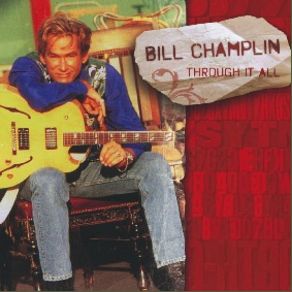Through It All
Download links and information about Through It All by Bill Champlin. This album was released in 1996 and it belongs to Gospel, Rock, Pop genres. It contains 10 tracks with total duration of 50:35 minutes.

|
|
|---|---|
| Artist: | Bill Champlin |
| Release date: | 1996 |
| Genre: | Gospel, Rock, Pop |
| Tracks: | 10 |
| Duration: | 50:35 |
| Buy it NOW at: | |
| Buy on iTunes $5.99 | |
| Buy on Amazon $5.99 | |
| Buy on Amazon $10.97 | |
Tracks
[Edit]| No. | Title | Length |
|---|---|---|
| 1. | I Must Have Been a Fool | 4:19 |
| 2. | Turn Your Love Around | 5:37 |
| 3. | Just to Be Loved | 5:10 |
| 4. | Proud of Our Blindness | 5:14 |
| 5. | Come On In | 4:33 |
| 6. | Sound of the Rain | 8:23 |
| 7. | Through It All | 4:22 |
| 8. | In the Heat of the Night | 4:17 |
| 9. | Little Sister | 4:22 |
| 10. | Light Up the Candles | 4:18 |
Details
[Edit]On his third solo album, Burn Down the Night (1992), Bill Champlin made a far more personal and serious statement than he had on his two more commercially oriented efforts from a decade or more earlier. Through It All, following two years later, seemed to split the difference. On the one hand, Champlin deliberately looked back to his days of the late '70s and early '80s, when he was spending his time in Los Angeles recording studios as a background singer and getting his songs covered by a variety of performers. At the album's outset, he took back for his own his compositions "I Must Have Been a Fool," initially cut by Al Jarreau on his 1988 album Heart's Horizon, and "Turn Your Love Around," a Top Five hit for George Benson in 1981-1982 that won Champlin his second Grammy Award for Best Rhythm & Blues Song. Later, he presented a new version of "In the Heat of the Night," the 1967 movie title song written by Quincy Jones and Alan and Marilyn Bergman, which he had been heard singing week after week on the 1988-1994 TV series (making it probably his best-known vocal performance even if, as usual, most people didn't know it was him). Elsewhere, however, he continued with some of the more socially conscious music he had performed on Burn Down the Night, particularly "Proud of Our Blindness," the lengthy "Sound of the Rain" (an attack on televangelists), and the caustic album closer, "Light Up the Candles." He also found room for some effective ballads, however, notably the melodic title song, which was easy to imagine as an adult contemporary hit, if it had the right promotion. On a limited budget, he used fewer extra musicians than on previous albums and relied more heavily on synthesizers (for example, no drummer was credited). But that didn't keep him from turning out a quality effort.